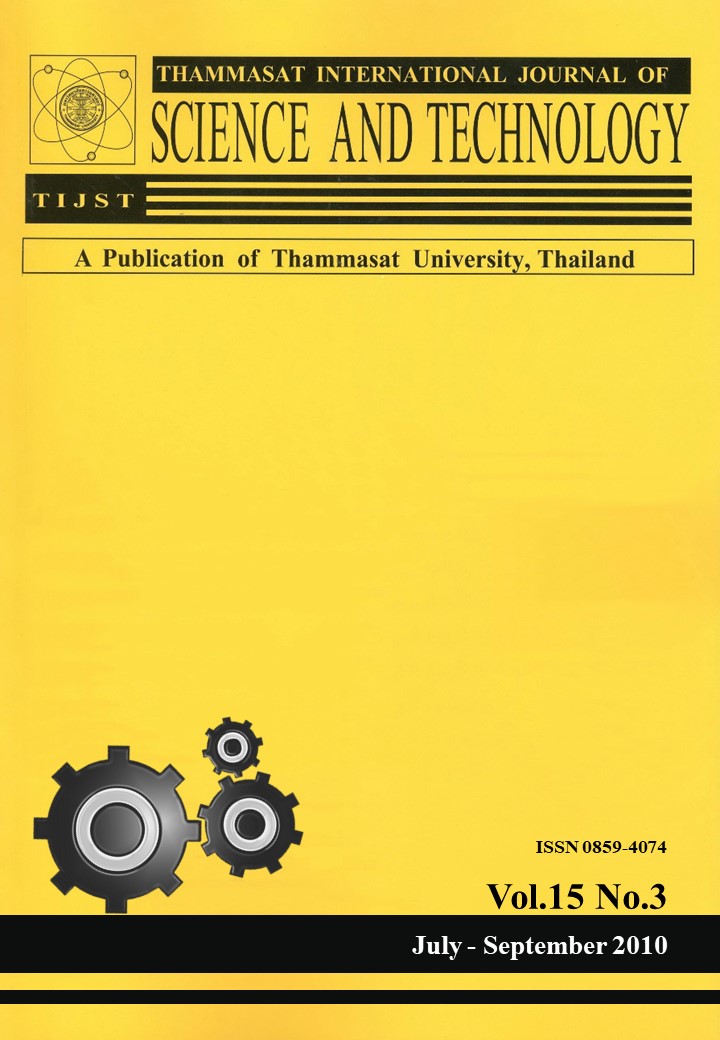Influence of Sodium Dodecyl Sulfate on Corrosion Behavior of 304 Stainless Steel
Keywords:
Corrosion, Passivation, Pitting, Stainless steel, Sodium dodecyl sulfateAbstract
Influence of sodium dodecyl sulfate (SDS) on corrosion behavior of AISI 304 stainless steel in 0.01 N HCl solutions has been investigated by using the potentiodynamic polarization technique at 25oC. The saturated calomel electrode was used as a reference electrode and platinum plate was applied as a counter electrode. The solution was saturated with air during polarization. The critical micelle concentration (CMC) has been evaluated by conductivity measurements. The concentration of SDS was set in a range below and above the CMC for corrosion measurements. Corrosion current density of 304 stainless steel does not depend on the concentration of sodium dodecyl sulfate in HCl solution. Sodium dodecyl sulfate increases pitting resistance of 304 stainless steel in HCl solution.








